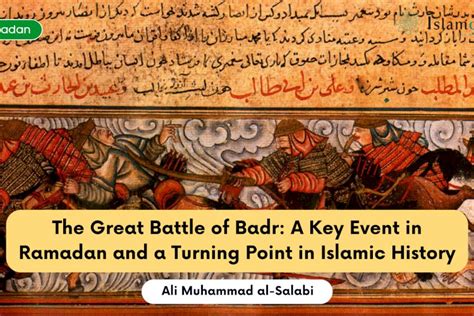Battle of Badr: A Pivotal Event in Islamic History

Background and Context

The Battle of Badr took place in 624 CE near the town of Badr, in present-day Saudi Arabia. It was a clash between the Muslims of Medina and the Quraysh of Mecca, who had been opponents of Islam. Despite being outnumbered, the Muslim forces emerged victorious, significantly boosting their morale and solidifying their faith.
Key Events and Leadership

Leadership of Prophet Muhammad
The leadership of Prophet Muhammad was instrumental in the Battle of Badr. He strategically positioned his forces and prayed for divine assistance, demonstrating his reliance on faith and strategy.
Notable Companions
Notable companions like Khalid bin Al-Waleed and Ali ibn Abi Talib played crucial roles in the battle. Their bravery and dedication were key factors in the Muslim victory.
aftermath and Legacy

The victory at Badr was seen as a divine favor and a turning point for the Muslim community. It demonstrated their resilience and commitment to their faith. The aftermath of the battle saw the capture of several Quraysh leaders, with some being ransomed and others pardoned. This act of mercy reflected the Prophet’s teachings on compassion and justice.
The Battle of Badr is also remembered for its significance in unifying the Muslim community and establishing Islam as a growing force in the region. The town of Badr itself holds historical importance as the site of this seminal event and is often visited by pilgrims and historians interested in Islamic history.
Miscellaneous Notes

The mention of “Prostitutes Badr Hunayn” appears to be unrelated to the historical context of the Battle of Badr and may be a misinterpretation or a separate topic.
Tags

*TAGS* – Battle of Badr, Islamic history, Prophet Muhammad, Muslim community, Quraysh, medieval battles, religious history, Islamic tradition, historical events, perseverance, faith, justice, compassion.